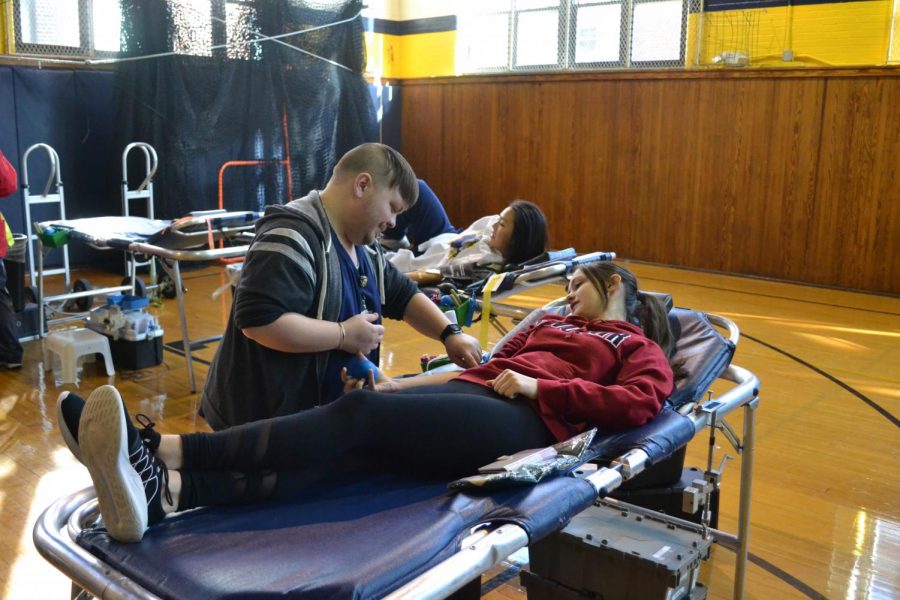Donate blood and save a life
Exploring the positive and negative effects of donating blood
On Dec. 5, the student council held its annual blood drive throughout the day in the west gym. The student council has been doing the blood drive for over 20 years and encourages students to participate.
“This is going to help so many people in the greater Dayton area because many people who have been in traumatic events, such as car accidents, need blood,” Rebecca Veneman, student council adviser, said. “You never know when something is going to happen and someone is going to need blood.”
Many students participated in the blood drive to help people in the local area.
Jacob Wright (11) donated blood at the recent blood drive.
“I felt really good after I donated blood because I knew I did something that could benefit many people in the area,” Wright said. “Donating blood is very important because there are people out there who need blood and struggle to produce it themselves.”
Donating blood is safe, but there are potential side effects.
“You may feel lightheaded, tired, or dizzy after giving blood, so you should not plan to do anything strenuous after donating,” according to the Cleveland Clinic website.
Recently, local blood banks have been taking more precautions to make sure the donors do not experience any of these negative effects.
“Sterile materials are used and discarded safely after one-time use on the donor,” according to the Cleveland Clinic website. “This is for the safety of the person who receives the blood, as well as the safety of the donor, and the staff collecting the blood.”
Donating blood has many benefits for both the donor and the person receiving the blood.
“Blood donation helps in lowering the risk of cancer,” according to the Benefit and Risk Management Services website. “By donating blood the iron stores in the body are maintained at healthy levels. A reduction in the iron level in the body is linked with low cancer risk.”
Despite the possible negative effects, there are still many benefits to donating blood. If you are willing and able to donate blood, the requirements are to be at least 17 years old, or 16 with parental permission, weight at least 110 pounds, and be in good health according to the Ohio Department of Health website.







